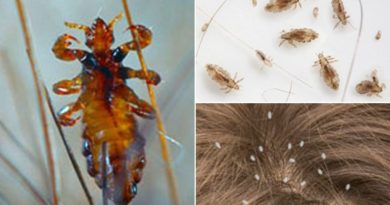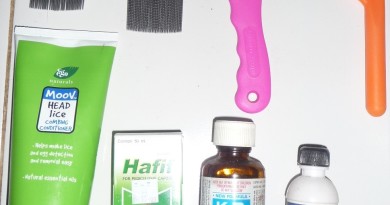Dengue Fever Information
Rainy season comes with lot of fun, excitement and along with it there are a host of infections that are prevalent during this season. People should be aware of these problems so that they can take necessary precautions during this season. The most common illness is related to the respiratory system. Water and food borne diseases cannot be overlooked and these include the increased risk of dengue fever.
Cold and flu are common illness that is found in the rainy season and this is usually due to fluctuation in the temperature. If you are a student, a working citizen or a mom, you need to protect yourself from these illnesses to prevent getting sick.
Common Illness caused During Rainy Season
-
- Dengue
- Cold
- Flu
- Food infection
- Water infection
- Leptospirosos is caused by bacteria that can be carried either by a man or some animal. Its severe form can damage kidney, lever, meningitis and respiratory failure.
Fever
Dengue fever is an infectious disease carried by mosquitoes ( Aedes aegypti). This disease used to be called “break-bone” fever because it sometimes causes severe joint and muscle pain that feels like bones are breaking.
How is dengue contracted?
The virus is contracted from the bite of a striped Aedes aegypti mosquito that has previously bitten an infected person. The mosquito flourishes during rainy seasons but can breed in water-filled flower pots, plastic bags, and cans year-round. One mosquito bite can inflict the disease.
The virus is not contagious and cannot be spread directly from person to person. There must be a person-to-mosquito-to-another-person pathway.
SYMPTOMS
Symptoms of typical uncomplicated (classic) dengue usually start with fever within 5 to 6 days after you have been bitten by an infected mosquito and include
- High fever, up to 105 degrees Fahrenheit or a mild fever
- Severe headache
- Retro-orbital (behind the eye) pain
- Severe joint and muscle pain
- Nausea and vomiting
- Rash
The rash may appear over most of your body 3 to 4 days after the fever begins. You may get a second rash later in the disease. The illness can last up to 10 days, but complete recovery can take as long as a month. Older children and adults are usually sicker than young children.
Most dengue infections result in relatively mild illness, but some can progress to hemorrhagic dengue fever. With hemorrhagic dengue fever, the blood vessels start to leak and cause bleeding from the nose, mouth, and gums. Bruising can be a sign of bleeding inside the body. Without prompt treatment, the blood vessels can collapse, causing shock (dengue shock syndrome). Hemorrhagic dengue fever is fatal in about 5 percent of cases, mostly among children and young adults.
Symptoms of dengue shock syndrome (the most severe form of dengue disease) include all of the symptoms of classic dengue and hemorrhagic dengue fever, plus
- Fluids leaking outside of blood vessels
- Massive bleeding
- Shock (very low blood pressure)
This form of the disease usually occurs in children (sometimes adults) experiencing their second dengue infection. It is sometimes fatal, especially in children and young adults.
DIAGNOSIS
Your health care provider can diagnose dengue fever by doing two blood tests, 2 to 3 days apart. The tests can show whether a sample of your blood contains antibodies to the virus. In epidemics, a health care provider often can diagnose dengue by typical signs and symptoms.
TREATMENT
There is no specific treatment for classic dengue fever, and like most people you will recover completely within 2 weeks. To help with recovery, health care experts recommend
- Getting plenty of bed rest
- Drinking lots of fluids
- Taking medicine to reduce fever
CDC advises people with dengue fever not to take aspirin. Acetaminophen or other over-the-counter pain-reducing medicines are safe for most people.
For severe dengue symptoms, including shock and coma, early and aggressive emergency treatment with fluid and electrolyte replacement can be lifesaving.
PREVENTION
There is no vaccine to prevent dengue. The best way to prevent dengue fever is to take special precautions to avoid contact with mosquitoes, avoiding mosquito bites when traveling to areas where dengue occurs and eliminating mosquito breeding sites is another key prevention measure.
Avoid mosquito bites when traveling in tropical areas:
- Use mosquito repellents on skin and clothing.
- When outdoors during times that mosquitoes are biting, wear long-sleeved shirts and long pants tucked into socks.
- Avoid heavily populated residential areas.
- When indoors, stay in air-conditioned or screened areas. Use bed nets if sleeping areas are not screened or air-conditioned.
- If you have symptoms of dengue, report your travel history to your doctor.
Because Aedes mosquitoes usually bite during the day, be sure to use precautions especially during early morning hours before daybreak and in the late afternoon before dark.
Other precautions include
- Keeping unscreened windows and doors closed
- Keeping window and door screens repaired
- Getting rid of areas where mosquitoes breed, such as standing water in flower pots, containers, birdbaths, discarded tires, etc.
Precautions During Rainy Season
- Keep Rain Gear With you Always – The most effective thing that you can do is to keep your rain gear always ready when you go out in rainy season. A raincoat with hooded jacket and waterproof shoes are the best items.
- Vitamin C – Increasing the intake of Vitamin C either in natural form or as food supplement will help you drive away the cold virus faster. It is still a matter of debate among doctors whether Vitamin C is cure for cold. However, a healthy supply of this vitamin will activate your antibodies and reduce the severity of cold, undoubtedly.
- Shower After Being Caught in Rain – Although it sounds very unusual because if you are drenched in rain, you will never want to take another shower. But taking a shower after you have been caught in rain will protect you from many infections.
- Hot Drinks – After you come back home caught in a rain, take a shower, dry yourself and wear dry and clean clothes. The best thing is to make a hot soup for yourself or at least drink a cup of hot milk. This will help you from catching cold or save you from catching any kind of infection that can occur due to sudden change in the temperature of the body.
- Cleanliness – Cleanliness is very important during rainy season. Even if you catch a cold, you should clean your hands regularly and use a sanitizer always after that.
- Drink Plenty of Water – Water intake may reduce naturally because of the sudden drop in the temperature of the environment. It is good to drink plenty of water and do not wait to get thirsty to drink water. This will help you drain toxins from your body.
- Watch Out your Intake – Try to eat nutritious food and avoid eating out during rainy season. Prepare meal with full precaution and maintain health and hygiene throughout the house.
www.dhpe.org/infect/dengue.html. www.medicalnewstoday.com/medicalnews,



